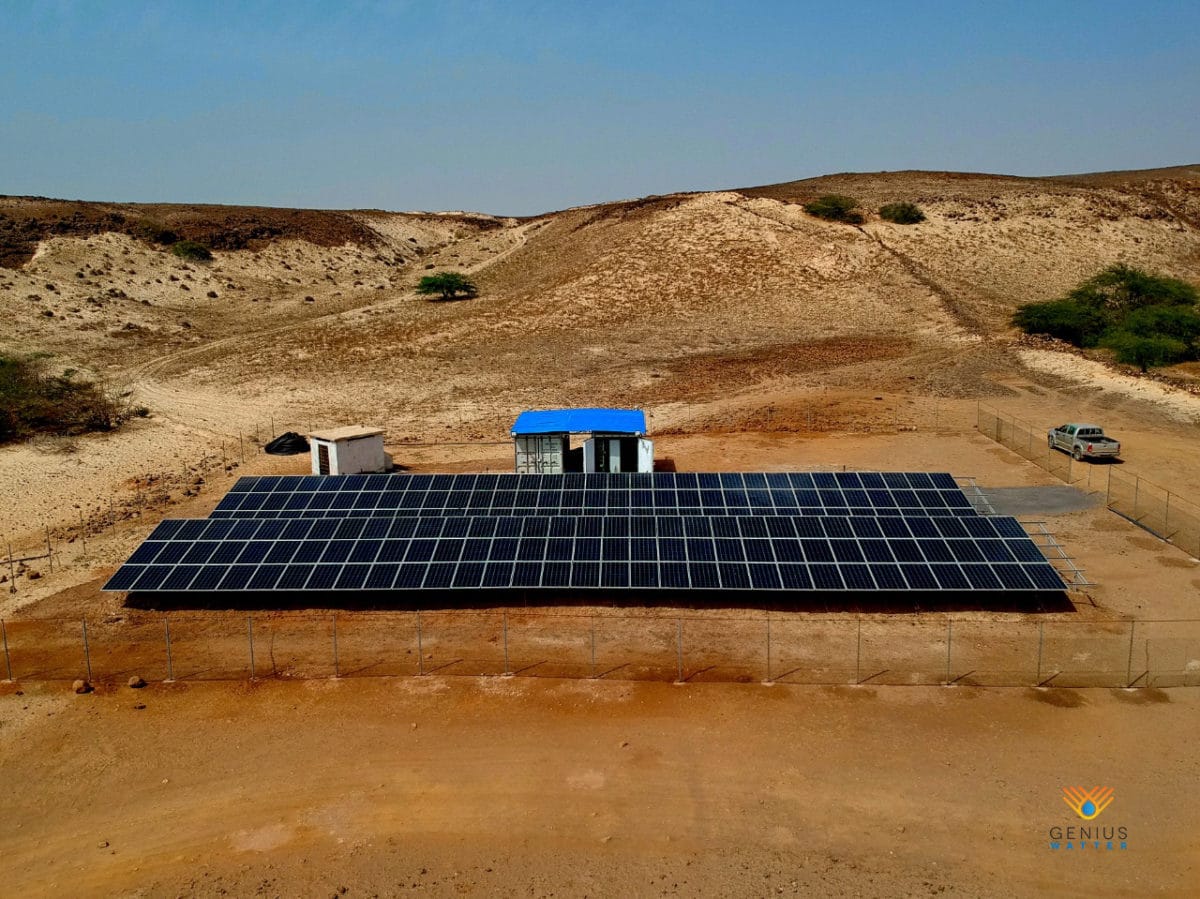As the global community gears up for COP28, one of the most debated topics is how to support local authorities’ efforts towards a sustainable energy transition and to create high-level platforms for public-private dialogue. Yet, the silo approach to energy seems to be the most common in the discussions.
To address this problem, RES4Africa calls for integrated policy actions where energy, water and food intersect and interconnect. Recognizing the intertwined connection as a cross-cutting challenge that needs to be tackled in an integrated way could reduce risk, and ensure long-term emissions target reduction.
The urgency of addressing the challenges of climate change can accelerate the path towards a green and inclusive transition, by turning climate change from a water-energy-food nexus crisis to a nexus opportunity. This can happen through several PV technologies, including desalination coupled with renewables, PV shading for horticulture, and solar irrigation.
The International Renewable Energy Agency (IRENA) expects solar energy development to be the dominant renewable source of electricity by 2050. The solar PV global cumulative installed capacity is expected to rise to 8,519 GW by 2050 compared to 480 GW in 2018 and reach 151 GW in 2040 in North Africa.
Solar desalination
RES4Africa has recently published reports on financing water-energy-food-nexus and the different business models and applications Desalination coupled with renewables
Desalination currently with solar PV photovoltaics is a very widespread PV technology. It provides a promising direction for the future of water supply as a carbon-free and less energy-intensive option. This is even more true for countries where water scarcity and high availability of renewable energy sources coincide, such as Morocco. The country is endowed with tremendous solar energy potential, solid leadership in the installation and management of renewable energies, and the technical capacity to explore new advancements in the field.
Moreover, this solution also appears cost-effective, given the rising prices of fossil fuels and the stable cost of PV. Morocco has a relatively low desalination capacity compared to other countries in the region; nevertheless, in 2021, the government declared the aim to achieve long-term desalination production by announcing nine new plants, expected to produce an additional water capacity of 397 Mm3/year, representing over a 500% growth rate between 2020 and 2030 and 97% of the new capacity is disclosed to be coupled with renewable sources.
Agrivoltaics
Popular content
Agrivoltaics combine agriculture and the generation of solar energy in the same location, adapting them to each other. RES4Africa strongly believes that combining agriculture and solar panels on the same land will allow countries in the region to harvest the sun twice, ease water stress, and land use competition while enhancing the food security of a rapidly growing population.
Globally, agrivoltaics are a confirmed practice, while in the southern Mediterranean, it remains embryonic: pilot projects – funded by EU and UN agencies – are underway in Algeria, Morocco, Tunisia, Egypt, and Jordan, to assess the compatibility, efficiency, and profitability for energy and agriculture production. Deploying agrivoltaics in these countries can only happen with a political commitment from governments and institutions.
Nations like France, Korea, Germany, and Japan, among others, have politically declared their interest in agrivoltaics, explicitly outlining its benefits to co-locate solar power generation and crop production. This strategic commitment enabled the speedy application of the system in the countries, and the incorporation of agrivoltaics across national strategies, plans, and policy tools, with growing public support.
Author: Rima Jreich
Sign up to RES4Africa’s Newsletter to learn more about its reports.
RES4Africa Foundation (Renewable Energy Solutions for Africa) envisions the sustainable transformation of Africa’s electricity systems to ensure reliable and affordable electricity access for all, enabling the continent to achieve its full, resilient, inclusive and sustainable development. The Foundation’s mission is to create favorable conditions for scaling up investments in clean energy technologies to accelerate the continent’s just energy transition and transformation. See more: www.res4africa.org
The views and opinions expressed in this article are the author’s own, and do not necessarily reflect those held by pv magazine.
This content is protected by copyright and may not be reused. If you want to cooperate with us and would like to reuse some of our content, please contact: editors@pv-magazine.com.


Africa could be the powerhouse of the world with battery storage and solar.
The sun resource is there but money and effective leadership is missing.
The face of Africa could change and move completely away from polluting fossil fuels.
The future is there but chances are it will be wasted or ignored.